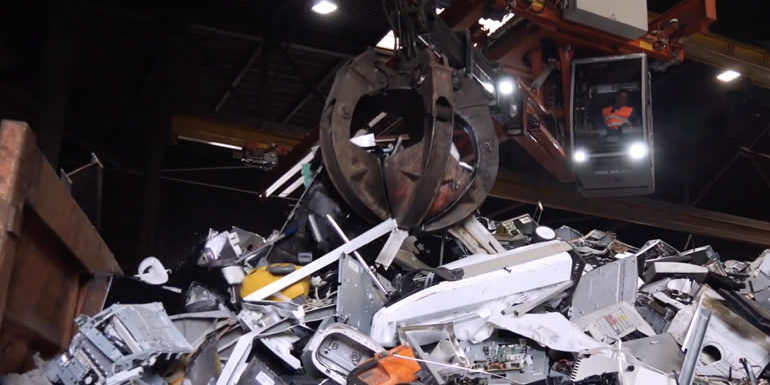According to the latest estimates, the world discards approximately 50 million metric tonnes of e-waste annually. E-waste is full of hazardous material – including mercury, cadmium and lead – that can cause damage to human health and the environment if not managed properly.
But only 20 percent of global e-waste is recycled. The rest ends up in landfill, burned or illegally traded every year – or is not recycled at all.
In Switzerland alone, a country with a population of just 8.4 million people, there are an estimated 8-10 million smartphones lying unused in homes throughout the country.
“It’s mostly emotional; people are very sentimental about their cell phones,” said Lovey Wymann, Communications for Swico, Switzerland’s digital e-waste agency.
And yet, Switzerland is a good example of how to deal with the growing environmental issue.
Despite being one of the biggest global producers of e-waste – producing 184 kilotons in 2016 – the country collects and recycles roughly 75 percent of this discarded material, with 134 kilotonnes recovered in 2015. When it comes specifically to digital e-waste (for example, mobile phones and other devices), the recycling rate in 2018 was as high as 95 percent.
This is thanks to a strong and convenient voluntary ‘take-back’ system, where consumers can take e-waste to a dedicated recycling collection point or any electronic shop that sells the same type of equipment throughout the country.
Though the Swiss system can be considered a role model for e-waste recycling management, it faces the same global challenges as every nation.
“Recycling e-waste has always been very challenging,” said Markus Stengele, Head of Quality, Environment and Safety at the e-waste recycling facility Solenthaler Recycling AG (Sorec) in St. Gallen, north-east Switzerland.
“At the moment, everyone is focusing on lithium-ion batteries. We have the problem that they aren’t easy to take out and they self-ignite. This makes it more dangerous for the people working at the facility and transporting the material,” Stengele said.







